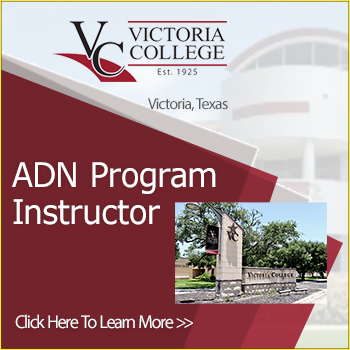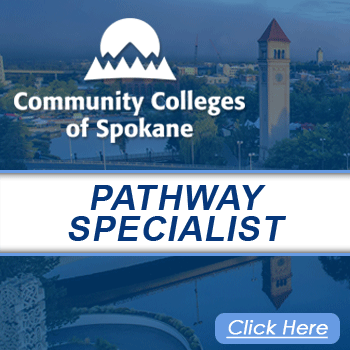This job has Expired

Full Time Faculty, Biological/Life Sciences
Job Description
Full Job Description
NorthWest Arkansas Community College (NWACC) provides quality and affordable higher education to empower lives and strengthen communities within Northwest Arkansas and surrounding areas.
As the largest community college in Arkansas, NWACC is recognized as a leader in education. NWACC offers a full range of associate degrees, certificates and workforce training programs that prepare students for rewarding futures and careers.
As the largest community college in Arkansas, NWACC is recognized as a leader in education. NWACC offers a full range of associate degrees, certificates and workforce training programs that prepare students for rewarding futures and careers.
NWACC employees are dedicated to fostering a diverse educational community and cultural learning environment that supports student success.
This position will start August 2023
Develop course curriculum, course handouts, lectures, labs, and presentations.
Participate in program level learning assessment. Participation includes helping articulate learning outcomes, choosing and administering measures, evaluating student performance, and suggesting changes to improve student learning.
Work with other faculty and administrators in developing program curriculum, standards, and policies, including reviewing and participating in textbook selection process where appropriate.
Schedule, supervise, debrief, and evaluate students in clinical, internship, observation, field experience, and similar settings as appropriate for the course or program.
Be available to students via email, phone, or personal conferences. The method of contact and hours of availability should be clearly communicated to supervisors and to students through the course syllabus each semester.
Assign grades and maintain course/student records in accordance with FERPA regulations and submit grades and records by established deadlines.
Meet all classes and other scheduled responsibilities such as office hours and meetings at the designated times. A faculty member should inform the supervisor if he or she is unable to meet a class on time.
Keep a flexible weekly schedule that best facilitates student learning and access. Any changes in the scheduled class times or locations should have prior approval by the faculty's supervisor. Examples of the various ways faculty keep flexible schedules to accommodate student learning from week to week could include:
Late night or early morning preparation of lab materials or activities.
Organizing, rehearsing, and hosting musical or dramatic performances or other events.
Arranging and conducting on-site clinical or internship experiences.
Planning and supervising field trips.
Keeping weekend and/or late night online office hours or online discussions.
Conducting special review sessions outside of scheduled class times.
Accommodating student make-up work
Spending extended periods grading exams or assignments to allow prompt feedback to students.
Professional Development
The following are examples of what may be considered professional development. Some of these may be required based on the nature of the program, division, or college policy.
The following are examples of what may be considered professional development. Some of these may be required based on the nature of the program, division, or college policy.
Participate in faculty evaluation process.
Remain current in academic or program discipline, including attending professional conferences, and maintaining licensure, certification, or continuing education requirements where appropriate.
Receive training or stay current in technological or pedagogical advances that promote student learning.
Participate in college professional development activities.
Participate in faculty evaluation process.
Remain current in academic or program discipline, including attending professional conferences, and maintaining licensure, certification, or continuing education requirements where appropriate.
Receive training or stay current in technological or pedagogical advances that promote student learning.
Participate in college professional development activities.
Service to the College
The following are examples of what may be considered service to the college. Some of these may be required based on the nature of the program, division, or college policy.
Help students achieve their educational goals through formal and/or informal advising.
Post and keep on campus hours to facilitate interaction with students, other faculty, staff, administrators, and the public.
Serve on standing and ad hoc committees, advisory boards, hiring committees, faculty senate, or as a student organization advisor.
Attend local, regional, state, or national meetings where required or necessary for the discipline.
Mentor and/or assist in orienting new faculty either formally or informally.
Serve as a liaison for Early College Experience faculty.
Attend commencement or other ceremonies appropriate to the faculty member's discipline or program.
Attend departmental, divisional, and college-wide meetings.
Perform other academically related duties as assigned by the instructor's supervisor.
Participate in faculty business meetings and forums.
Help students achieve their educational goals through formal and/or informal advising.
Post and keep on campus hours to facilitate interaction with students, other faculty, staff, administrators, and the public.
Serve on standing and ad hoc committees, advisory boards, hiring committees, faculty senate, or as a student organization advisor.
Attend local, regional, state, or national meetings where required or necessary for the discipline.
Mentor and/or assist in orienting new faculty either formally or informally.
Serve as a liaison for Early College Experience faculty.
Attend commencement or other ceremonies appropriate to the faculty member's discipline or program.
Attend departmental, divisional, and college-wide meetings.
Perform other academically related duties as assigned by the instructor's supervisor.
Participate in faculty business meetings and forums.
Rate of pay: determined by month faculty scale placement (education and experience)
Knowledge, Skills, and Abilities:
-
Demonstrated teaching ability is the top priority. Instructional experience and leadership experience at a community college is a priority.
-
Ability to use an on-line platform. On-line delivery of instruction, use of technology for instruction, and experience or interest in project based, service learning, or inquiry based learning will be given special consideration.
-
Knowledge of good laboratory procedures, governmental safety regulations regarding lab safety is desirable.
Physical Demands/Work Environment
The following physical activities described here are representative of those that must be met by an employee to successfully perform the essential functions of this job. Reasonable accommodations may be made to enable individuals with disabilities to perform the essential functions and expectations.
While performing the functions of this job, the employee is:
Frequently:
While performing the functions of this job, the employee is:
Frequently:
- Manipulate items with fingers, including keyboarding
- Sitting
- Standing
- Walking
- Hearing
- Repetitive motion
- Talking
The worker is required to have close visual acuity to perform an activity such as: preparing and analyzing data and figures; transcribing; viewing a computer terminal; extensive reading; and/or visual inspection at distances close to the eyes.
Required Qualifications
Masters degree with at least 18 graduate hours related to biology or life science required. Fifteen graduate hours supporting the secondary science courses are also necessary. One year minimum of face-to face college teaching experience is expected. Other job related education and/or experience may be substituted on approval of screening committee.
Required Documents to Apply
-
Cover letter
-
Resume
-
Official transcripts
-
List of two professional references (name, business title, phone number, e-mail address and relationship)
NWACC is an Equal Opportunity Employer, please see our EEO policy.
*Please mention you saw this ad on CommunityCollegeJobs.*
Search Community College Jobs By State
- Community College Jobs in Alabama
- Community College Jobs in Alaska
- Community College Jobs in Arizona
- Community College Jobs in Arkansas
- Community College Jobs in California
- Community College Jobs in Colorado
- Community College Jobs in Connecticut
- Community College Jobs in Delaware
- Community College Jobs in Florida
- Community College Jobs in Georgia
- Community College Jobs in Hawaii
- Community College Jobs in Idaho
- Community College Jobs in Illinois
- Community College Jobs in Indiana
- Community College Jobs in Iowa
- Community College Jobs in Kansas
- Community College Jobs in Kentucky
- Community College Jobs in Louisiana
- Community College Jobs in Maine
- Community College Jobs in Maryland
- Community College Jobs in Massachusetts
- Community College Jobs in Michigan
- Community College Jobs in Minnesota
- Community College Jobs in Mississippi
- Community College Jobs in Missouri
- Community College Jobs in Montana
- Community College Jobs in Nebraska
- Community College Jobs in Nevada
- Community College Jobs in New Hampshire
- Community College Jobs in New Jersey
- Community College Jobs in New Mexico
- Community College Jobs in New York
- Community College Jobs in North Carolina
- Community College Jobs in North Dakota
- Community College Jobs in Ohio
- Community College Jobs in Oklahoma
- Community College Jobs in Oregon
- Community College Jobs in Pennsylvania
- Community College Jobs in Rhode Island
- Community College Jobs in South Carolina
- Community College Jobs in South Dakota
- Community College Jobs in Tennessee
- Community College Jobs in Texas
- Community College Jobs in Utah
- Community College Jobs in Vermont
- Community College Jobs in Virginia
- Community College Jobs in Washington
- Community College Jobs in West Virginia
- Community College Jobs in Wisconsin
- Community College Jobs in Wyoming





